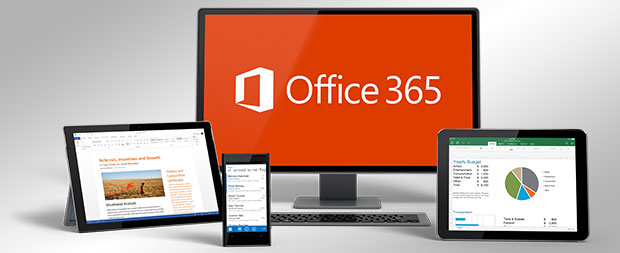Microsoft on Tuesday announced a slew of cloud-powered intelligent services in Office 365 apps that aim to assist research and writing efforts.
Researcher lets users access the Bing Knowledge Graph to find and incorporate sources and content for research papers without leaving Word.
Editor uses machine learning and national language processing, combined with input from Microsoft’s linguists, to make proofing and editing suggestions designed to help users improve their writing.
These updates will be rolling out to Office 365 within the coming months, a Microsoft spokesperson said in comments provided to TechNewsWorld by company rep Lenette Larson.
Researcher will be available this month for Word 2016 users. Editor will arrive in August, with expanded capabilities scheduled to roll out this fall.
Microsoft’s plans include expanding Researcher to mobile platforms.
Going to the Source
Researcher lets users pull in relevant material from the Web through Bing Knowledge Graph and add it in properly formatted citations.
Microsoft plans to expand Researcher’s body of reference materials to include sources like national science and health centers, encyclopedias, history databases and more.
Researcher Mobile will let users create quick outlines for papers on any device.
“My first thought was, ‘Damn! Why didn’t they have this when I was in school?'” said Laura DiDio, a research director at Strategy Analytics.
Researcher “is a double-edged sword,” she told TechNewsWorld. “On the one hand, it’s a useful tool; on the other hand, who vets the sources?”
The feature “isn’t a silver bullet, but it’s better than nothing,” DiDio said, “and will have an immediate, tangible — and ostensibly, positive — impact on researchers.”
The question of which sources will be included in Knowledge Graph searches is a big issue, observed Charles King, principal analyst at Pund-IT.
“Microsoft says that it will continue expanding Researcher’s body of reference materials,” he told TechNewsWorld. “That’s great, but it’d be nice to know which specific sources are currently — and will eventually be — included.”
Smart Enough?
Editor’s capabilities may raise concerns with people who have struggled with autocorrect and autofill capabilities.
“There’s nothing worse than doing a spell and grammar check and finding out your checker is schizophrenic when it comes to words like ‘its’ and ‘it’s,’ for example. Or it keeps changing ‘IoT’ to ‘iota,'” DiDio remarked. “Will Editor be helpful, or will it be an annoyance?”
The technology behind Editor is “a new Office-created intelligence engine that uses the best of local and online machine learning and linguistic technologies with deep partnerships with Bing and Microsoft research,” the Microsoft spokesperson noted. “Editor uses online services when appropriate.”
Editor supports more than 90 languages, including various flavors of English, and “is smart enough to understand the market differences in languages,” the spokesperson pointed out, “and the help it provides is tailored to the market the user is in.”
Security Misgivings
The specter of Researcher pulling in tainted websites automatically is a real concern, especially in the wake of the Cerber zero-day ransomware attack on Office 365 users last month.
Microsoft detected the attack and began blocking the Cerber ransomware attachment the next day, but roughly 57 percent of organizations using Office 360 received at least one copy of the malware during the attack, according to Avanan.
“There is currently no known way to decrypt a Cerber-encrypted file,” said Gil Friedrich, CEO of Avanan. “The only solution is to recover from backup or pay the ransom.”
The growth of Office 365 within more companies “makes it a more desirable delivery vector,” Friedrich told TechNewsWorld. Bing Knowledge Graph is a new vector, and “the victim will trust every file because it has been filtered — but not necessarily for malware.”
Protecting against infection requires using multiple types of detection mechanisms, Friedrich said.






















































With Windows 10 and Bing, Microsoft is trying to out Google Google. They’re trying to muscle in on Google’s dominance of the search engine advertising delivery market. But after 25 years of playing the corporate bully boy, lack of any kind of creative originality, and technical incompetence, is there any good reason anyone should trust them?
They’ve built some real strength in cloud services delivery, and they have massive capital reserves, but will that be enough to keep them profitable in the long term, in a computer device market dominated by smart phones, that stubbornly refuses to grant them any kind of competitive purchase?
And then there is the Elephant in the Room, the IoT, that has the potential to end the dominance of the smart phone as the world’s leading personal computing device. As Microsoft chases the smart phone Holy Grail, are they chasing market share for a form factor that has already started down the long road to obsolescence?